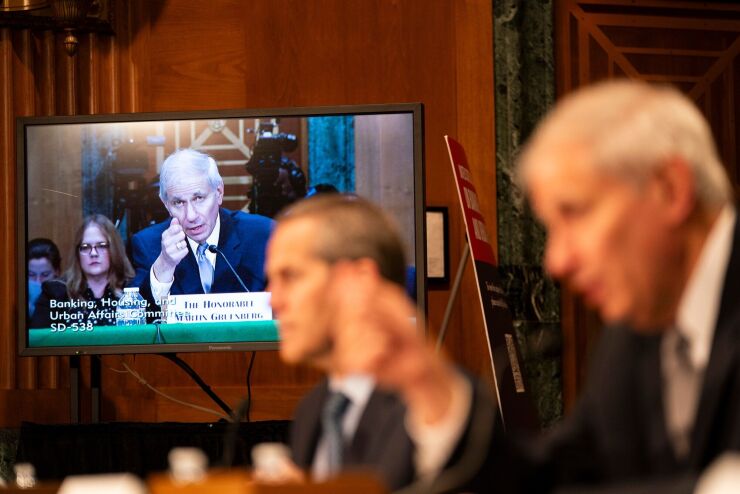
The Federal Deposit Insurance Corp. has extended the comment period for its proposal on brokered deposit restrictions that would potentially force banks to recategorize a large number of deposits.
The move comes after
The FDIC granted a 30-day extension to Nov. 21 for banks to provide feedback on the proposal on brokered deposits. The proposal would reverse the agency's position on what constitutes a brokered deposit and would affect a broad range of other industry participants including providers and sponsors of so-called sweep programs, prepaid programs, co-branded deposit programs and deposit platforms.
The presidential election and potential leadership turnover at the FDIC may affect how the agency proceeds with its proposal, which could be problematic for community banks that face challenges gathering deposits.
The proposal would reverse changes that were favorable to the banking industry under a rule enacted in 2020 during the Trump administration, which narrowed the definition of brokered deposits while modestly allowed more deposit arrangements regulated as brokered deposits. FDIC Chairman Martin Gruenberg opposed the rule at the time, saying it introduced undue risk to the financial system.
Gruenberg said in 2020 that under the changes, "a bank could rely for 100% of its deposits on a sophisticated, unaffiliated third party without any of those deposits considered brokered."
A bank could form "multiple 'exclusive' third party relationships to fund itself without any of those deposits considered brokered," he said.
The FDIC's revisions to the 2020 rule have broad implications for less well-capitalized banks' access to deposit funding sources, liquidity planning by banks that use brokered deposits, and the cost of federal deposit insurance.
The proposal would revise and expand the definition of a "deposit broker" and would amend two of the designated business relationships under what is known as a "primary purpose" exception.
It also would make changes to the notice and application process for the primary purpose exception and would clarify when an insured depository can regain status as an "agent institution" under the limited exception for a capped amount of reciprocal deposits.
The proposal would change the definition of a deposit broker to a third party that places deposits at "one or more" depository institutions. Currently, the definition is for brokers that place deposits at "more than one" bank. The language change also would eliminate a so-called exclusive arrangement exception under the 2020 rule that helped third parties partnering with banks avoid the deposit broker designation.






